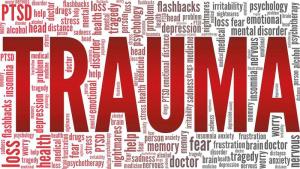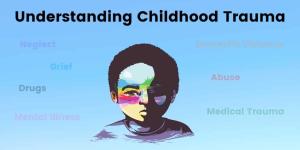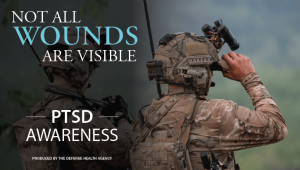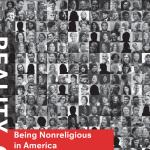
Trauma -“an emotional response to a terrible event.”

Photo Credit: The Food Network
“You scream, I scream, we all scream, for ice cream!” That was our rallying cry when we were kids and wanted our favorite summer treat. Later, we learned to leave off the ice cream part of the chant. Now it’s just, you scream, I scream, we all scream!” These are not lines from a horror movie or true crime story. They are some of the most vulnerable words in the Bible. You can find them in Romans 8:22-27, which I have taken the liberty to edit below:
“For we know that all creation has been groaning as in the pains of childbirth right up to the present time. And we believers also groan, even though we have the Holy Spirit within us as a foretaste of future glory, for we long for our bodies to be released from sin and suffering…But the Holy Spirit prays for us with groanings that cannot be expressed in words. And the Father who knows all hearts knows what the Spirit is saying, for the Spirit pleads for us believers in harmony with God’s own will,” (New Living Translation).
I’ve Got Some Bad News and I’ve Got Some Good News…
The Bad: For many people, life is full of trauma. Painful experiences from the past cause them to hesitate at every turn. The notion of trust leaves them feeling vulnerable. They doubt their judgment. Other people’s motives seem threatening. The goodness of God? They’re not so sure about that one either. To make matters worse, some people seem to sail through life without a hitch. They might have problems but nothing seems to take them down. Former Gambino Family mob boss, John Gotti, was one such character. At least for a while, he was called The Teflon Don. During the 1980s, he was acquitted 3 times of racketeering, robbery, and murder. King David complained about just this sort of thing in Psalm 73. Eventually, though, The Teflon Don went to prison and died of throat cancer; a clear example of what David called the “destiny of the wicked” (v 17).
The Good: “Yet I still belong to you; you hold my right hand. You guide me with your counsel, leading me to a glorious destiny (vv., 23,24 NLT.)
Most of us live somewhere in the middle…
We’ve all had our share of challenges but learned to compensate. We are certain that God is for us, but still, we struggle with our humanity. Some would even make you believe that your very humanity is at fault. But if that were true, why would God create us as humans? Why would he – God – become flesh, if the flesh is the problem?
Let’s assume that you and I were raised in homes filled with love and affirmation. Day-to-day, life was well-ordered. From a young age, we learned we could discuss our fears and live together in peace. Even such an idyllic upbringing could not promise a trouble-free life. Jesus said it best: “Here on earth you will have many trials and sorrows. But take heart, because I have overcome the world,” (John 16:33 NLT). For those who believe, the fact that he has “overcome the world,” means that our present trouble can do us no eternal harm. A few years ago, I wrote a song titled, Oh! It is inspired by the Roman passage I referred to earlier. The following image recites the lyrics to the chorus.
I remember watching television shows like, Leave It to Beaver, Ozzie and Harriet, and The Andy Griffith Show. They’re funny and even comforting, they’re just not realistic. These days, we see a slew of programming that portrays the raw edge of life. It’s not hard to find shows that center around abuse and violence, both in the home and on the streets. It’s as though we are drawn to these images of pain and trauma. Probably because they do reflect real life. Scientists discovered that the impact of pain and suffering is experienced through our genetics as well as the atmosphere of our upbringing. As a result, some parents are simply incapable of teaching their children to manage life productively without significant help. They, too, were victims.
Childhood loneliness is like living in a desert…

As previously noted, “trauma is the emotional response to a terrible event.” Childhood trauma can be the result of a wide range of terrible occurrences. One element that is known to feed the traumatic response is a sense of aloneness. Abuse has an awful impact on a child’s concept of self. It is common for traumatized children to believe they are not worthy of love and care. As a result, they often have trouble with relationships. Most have few if any friends. Childhood loneliness is like a desert; nothing much grows there, and it seldom rains. Loneliness, combined with poor self-image, creates a fracture in the foundation of a child’s life. Such a break becomes fertile soil for the seeds of depression and anxiety.

It is no secret that unresolved issues from childhood carry over to adolescence and adulthood.
Before long, all sorts of troubling coping mechanisms manifest. Ignoring a child’s problems compounds the pressure. Some experiment with drugs, alcohol, or sex to cope with the emotional impact of their experiences. At night, a troubled child dreams about unresolved fears. During the daytime, the same child is usually preoccupied with the emotional weight of it all. In more dysfunctional families, children face sexual, verbal, emotional, or physical abuse. These descriptions are merely a thumbnail sketch of disordered family life. The result is a childhood weighed down with trauma. It is no secret that unresolved issues from childhood carry over to adolescence and adulthood. Creation is surely groaning.

Imagine the adult stresses society places on the adolescent brain.
We often make the mistake of suggesting that 18 is the age of adulthood. However, scientists have established that brain development is not complete until approximately 25 years of age Imagine the adult stresses society places on the adolescent brain. Just because the adolescent body can perform an adult function does not mean the adolescent brain can. Many children and teens do not need to go overseas to fight in a war. They navigate the urban war zones of their schools and neighborhoods every day.
Eventually, we realized that PTSD is not just about soldiers returning from war…
Many soldiers returning from hotspots of civil unrest struggled with depression, had trouble sleeping, experienced blackouts, or easily lost their temper while trying to re-enter society. Although it’s not a new problem, the term Post-Traumatic Stress Disorder (PTSD) made its first appearance in the 1980 Diagnostic and Statistical Manual of Mental Disorders. As a result, we started talking openly about emotional and mental health concerns. Eventually, we realized that PTSD is not just about soldiers returning from war. It is also applicable to victims of childhood abuse, battered wives, victims of crime, and any terrible event. Over time, society has become more willing to talk about it. A January 2019 article featured in the American Psychological Association Monitor was titled, “Gen Z more likely to report mental health concerns.“ While that’s a good thing overall, there are still challenges when it comes to understanding trauma.
“There is no universal definition of trauma.”
“Experts tend to create their definitions of trauma based on their clinical experiences. However, the most commonly referenced definition is from the Substance Abuse and Mental Health Services Administration (SAMHSA):4’Individual trauma results from an event, series of events, or set of circumstances that is experienced by an individual as physically or emotionally harmful or life-threatening and that has lasting adverse effects on the individual’s functioning and mental, physical, social, emotional, or spiritual well-being.‘
Examples of trauma include, but are not limited to:
- Experiencing or observing physical, sexual, and emotional abuse;
- Childhood neglect;
- Having a family member with mental health or substance use disorder;
- Experiencing or witnessing violence in the community or while serving in the military; and
- Poverty and systemic discrimination.”
SOURCE: (ISSUE BRIEF: Key Ingredients for Successful, Trauma-Informed Care Implementation. April 2016 | By Christopher Menschner and Alexandra Maul, Center for Health Care Strategies)
I ran a simple Google search using the word, trauma and got 1,780,000,000 results in 0.44 seconds.
Yes, life is hard, but it is also good, and ironically, these are not mutually exclusive ideas. Primarily, because of the biblical concept that good triumphs over evil, God’s blessing cancels the curse, and grace abounds over sin (Romans 5:20,21). Still, we are not exempt from facing the pain of it all. While preparing for this article, I ran a simple Google search using the word, trauma and got 1,780,000,000 results in 0.44 seconds.
Conclusions…
Currently, we are on the waning side of the coronavirus pandemic. Around the world, governments and medical professionals have taken extreme caution to avoid the spread of the virus. To date, 684,104,579 people contracted Covid-19. 6,832,414 of them died. Reporters and medical professionals have described the pandemic with painstaking care. Family members and friends. have passed away. Many still struggle with the lingering symptoms of Covid. That is what a pandemic looks like.
Is Trauma An Emotional Pandemic?
Although it is not a contagious virus per se, I believe that trauma manifests as a worldwide, societal pandemic.
While it is not possible to know the precise number of child sexual abuse victims, we must consider the following statistics:
“Studies by David Finkelhor, Director of the Crimes Against Children Research Center, show that:
- 1 in 5 girls and 1 in 20 boys is a victim of child sexual abuse;
- Self-report studies show that 20% of adult females and 5-10% of adult males recall a childhood sexual assault or sexual abuse incident;
- During one year in the U.S., 16% of youth ages 14 to 17 had been sexually victimized;
- Throughout their lifetime, 28% of U.S. youth ages 14 to 17 had been sexually victimized;
- Children are most vulnerable to CSA between the ages of 7 and 13.
According to a 2003 National Institute of Justice report, 3 out of 4 adolescents who have been sexually assaulted were victimized by someone they knew well.”
(Statistics provided by the National Center for Victims of Crime)
Not only children…
- On average, nearly 20 people per minute are physically abused by an intimate partner in the United States.
- 1 in 4 women and 1 in 9 men experience severe intimate partner physical violence,
- 1 in 4 women and 1 in 7 men have been victims of severe physical violence…by an intimate partner in their lifetime.
- 1 in 7 women and 1 in 18 men have been stalked by an intimate partner during their lifetime…
- Domestic victimization is correlated with a higher rate of depression and suicidal behavior.
(Statistical data provided by The National Coalition Against Domestic Violence (NCADV)
Now is the time…
When Covid was first diagnosed, we wore masks to guard against catching this dreadful disease. Perhaps now is the time for us to unmask the perpetrators of abuse in its various forms. See them and hold them accountable. Listen very closely and you can hear the sounds of a groaning creation before its maker.



















